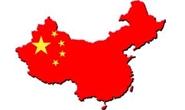Market Data

December 8, 2015
Steel Associations Oppose Market Economy Status for China
Written by Sandy Williams
AISI and eight other steel associations met with government officials in Paris on December 1 to present arguments against granting China Market Economy status. The press release from AISI follows:
PARIS – The American Iron and Steel Institute, the Steel Manufacturers Association, the Canadian Steel Producers Association, CANACERO (the Mexican steel association), Alacero (the Latin American steel association), EUROFER (the European steel association), Instituto AcoBrasil (the Brazil Steel Institute), the Turkish Steel Producers Association and the Committee on Pipe and Tube Imports conducted an educational briefing for government officials last week in Paris where they presented a unified position on the negative impact of granting China Market Economy Status (MES) in December 2016.
Presentations at the December 1st event in Paris reviewed the continued significant role of the state in the Chinese economy, the resultant growth in Chinese steel overcapacity and the surge in Chinese steel exports to world markets in recent years. Representatives from the various regional associations detailed the negative consequences that would result from granting China MES before Chinese market-distorting policies were fully reformed. In addition, a legal analysis was presented by Alan Price of Wiley Rein LLP demonstrating that World Trade Organization (WTO) member countries were authorized to continue applying non-market economy methodologies in anti-dumping investigations until China or Chinese producers can show that they operate under market economy conditions.
Given the continuing significant role of the Chinese state in many key aspects of the Chinese economy, especially in its state-owned and controlled steel sector, there is no question that China remains very much a non-market economy today. For the steel industry, recognition or treatment of China as a market economy at the end of 2016 would coincide with the peak of Chinese excess steelmaking capacity and record level of exports to international markets, including the U.S., the EU, Turkey and Latin America.
The regional steel associations continue to urge governments around the world to undertake comprehensive assessments of the continuing role of the state in the Chinese economy and the steel industry, and the impact on industries around the world, if China were to be treated as a market economy before it made the necessary reforms to ensure that market forces were allowed to operate fully in the Chinese economy.







